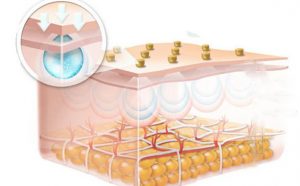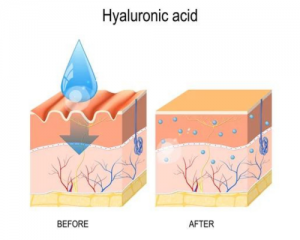Why Is Sodium Hyaluronate So Important in Skincare
If you’re a skincare aficionado who adores reading up on ingredients, then you’re most likely no stranger to sodium hyaluronate. Open up any bottle of hydrating serum or moisturizer, and you might just spot it on the ingredients list. So what is it about this seemingly humdrum ingredient that makes it an evergreen in the world of skincare?
What Sodium Hyaluronate Is
First, let’s find out what sodium hyaluronate is.
Sodium hyaluronate is the sodium salt of hyaluronic acid (HA), a naturally occurring polysaccharide macromolecule found universally throughout our bodies, particularly in the skin, joints, and eyes. Focusing on the HA molecular structure, it resembles a long, knotted rope. The “knots” can relax in water to form a three-dimensional “molecular sponge network.” It’s this extremely unique structure that renders HA’s water-binding capacity simply phenomenal. Scientific research indicates that a mere 1 gram of hyaluronic acid can retain between 500 to 1000 grams of water! No surprise it’s at the top in the world of hydration!
Aside from skincare, this multi-purpose ingredient also plays a crucial part in medical aesthetics, nutraceuticals, and even luxury textiles. But today, let us talk about its top-billed job in skincare.
What Are the Benefits of Sodium Hyaluronate for the Skin
High-molecular-weight sodium hyaluronate forms a breathable film over the skin surface, holding moisture in without excluding external bacteria, dust, and UV light. On the other hand, low-molecular-weight sodium hyaluronate penetrates deeply into the dermal layer, promoting nutrient absorption, enhancing the elasticity of the skin, and reducing aging.
1. Hydration
Sodium hyaluronate is extremely hydrophilic and forms a water-retaining barrier on the skin that is extremely efficient in retaining water. Its action is also adjustable based on environmental conditions: it holds most water at low relative humidity (33%) and least at high humidity (75%). As a result of this property, it enables optimal performance under diverse climatic conditions.
2. Skin Repair
When skin is harmed by sunburn, UV damage, redness, darkening, or peeling, sodium hyaluronate is to the rescue with firm support. It promotes epidermal cell proliferation and differentiation, promotes cell regeneration, and scavenges free radicals. This accelerates the healing of injured tissues at a faster rate, promoting skin regeneration and wound healing.
3. Anti-Wrinkle
About 50% of the sodium hyaluronate in the body resides in the dermis. Mixed with collagen and elastin, it forms a powerful matrix that gives skin stability and elasticity. However, HA content lessens, collagen decreases, and the skin’s ability to retain moisture diminishes with age, leading to wrinkles.
Sodium hyaluronate solutions possess high viscoelasticity and lubricity, creating a hydrating, permeable film that keeps the skin hydrated and radiates. Penetration of low-molecular-weight HA into the dermis increases microcirculation and augments the uptake of nutrients, all of which work towards anti-aging and wrinkle reduction.
Reading more: Hyaluronic Acid and Collagen: The Perfect Combination for Healthy Skin
4. Nutrition
Sodium hyaluronate is a natural compound present in the skin. Externally applied, it restocks the body’s endogenous HA store. The lesser molecular weight of HA allows easy absorption in the blood and dermis, replenishing the level of hyaluronic acid, lowering dryness, and maintaining nutrient delivery and waste removal, hindering skin aging and promoting beauty effectively.
To understand the difference between endogenous HA and exogenous HA, please read this article: Does Hyaluronic Acid Cause Cancer
Long-term popularity of sodium hyaluronate is not hype but solid scientific efficacy.
Stanford Chemicals Company (SCC) is a professional hyaluronic acid supplier, providing high-quality products and services to global clients in pharmaceuticals, skincare, and food industries. SCC specializes in the development, production, and distribution of cosmetic-grade HA, food-grade HA, medical-grade HA, chondroitin sulfate, dihydromyricetin, and more.


